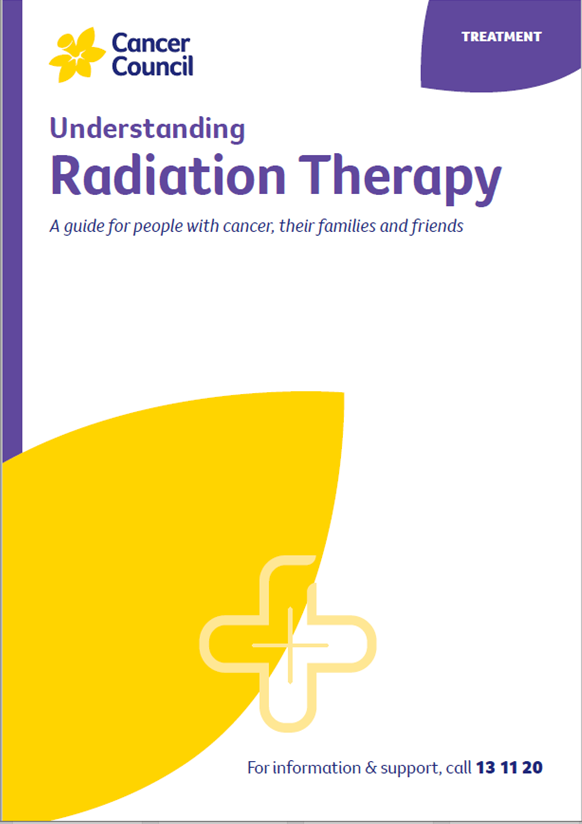- Home
- Vulvar cancer
- Treatment
- Radiation therapy
Radiation therapy for vulvar cancer
Also known as radiotherapy, radiation therapy uses a controlled dose of radiation to kill or damage cancer cells. The radiation is usually from x-ray beams.
For more on this, see our general section on Radiation therapy.
Learn more about:
When can you have radiation therapy?
Whether you have radiation therapy depends on the stage of the cancer, its size, and if it has spread to the lymph nodes.
You may have radiation therapy:
- after surgery to help destroy any remaining cancer cells and reduce the risk of the cancer coming back
- before surgery to shrink the cancer and make it easier to remove
- as the main treatment for advanced vulvar cancer, often combined with chemotherapy.
How is it given?
Radiation therapy for vulvar cancer is usually delivered from outside the body (external beam radiation therapy or EBRT). You will lie on a treatment table while a machine, called a linear accelerator, directs radiation towards the affected areas of the pelvis. You will have a planning session, including a CT or MRI scan, to work out where to direct the radiation beams. This may take up to 45 minutes. The actual treatment takes only a few minutes each time and is painless. For more on this, see our general section on External beam radiation therapy.
EBRT for vulvar cancer is usually given daily, Monday to Friday, over 5–6 weeks. Your radiation oncologist will discuss your treatment plan and side effects.
See also Managing side effects.
→ READ MORE: Chemotherapy for vulvar cancer
Video: What is radiation therapy?
Watch this short video to learn more about radiation therapy.
More resources
Prof Alison Brand AM, Director, Gynaecological Oncology, Westmead Hospital, NSW; Kim Hobbs, Clinical Specialist Social Worker, Gynaecological Cancer, Westmead Hospital, NSW; Dr Ming-Yin Lin, Radiation Oncologist, Peter MacCallum Cancer Centre, VIC; Dr Lisa Mackenzie, Clinical Psychologist Registrar, HNE Centre for Gynaecological Cancer, Hunter New England Local Health District, NSW; Anne Mellon, CNC – Gynaecological Oncology, HNE Centre for Gynaecological Cancer, Hunter New England Local Health District, NSW; A/Prof Tarek Meniawy, Medical Oncologist, Sir Charles Gairdner Hospital and The University of Western Australia, WA; Dr Archana Rao, Gynaecological Oncologist, Senior Staff Specialist, Royal Brisbane and Women’s Hospital, QLD; Tara Redemski, Senior Physiotherapist – Cancer and Blood Disorders, Gold Coast University Hospital, QLD; Anita Tyrrell, Consumer; Maria Veale, 13 11 20 Consultant, Cancer Council QLD.
View the Cancer Council NSW editorial policy.
View all publications or call 13 11 20 for free printed copies.
Need to talk?
Support services
Coping with cancer?
Speak to a health professional or to someone who has been there, or find a support group or forum
Looking for transport, accommodation or home help?
Practical advice and support during and after treatment
Cancer information
Common questions about radiation therapy
Key questions about radiation therapy as part of cancer treatment
Resource hub
Guides, fact sheets, videos, podcasts and more for people with cancer, their families and friends

